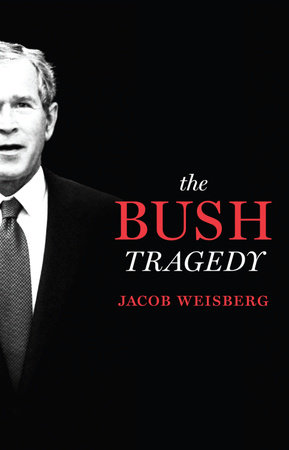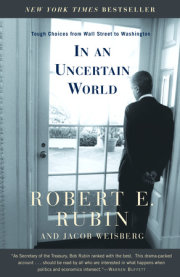Chapter One
The Bushes and the Walkers
O, had thy grandsire with a prophet’s eye
Seen how his son’s son should destroy his sons,
From forth thy reach he would have laid thy shame,
Deposing thee before thou wert possess’d
Which art possess’d now to depose thyself.
—richard ii
George walker bush is the product of two family traditions, the Bushes and the Walkers. On one side is the familiar patriarch Prescott Bush (1895–1972), the decorous Republican senator from Connecticut, the New England WASP, the pennant-waving Yale man. On the other side of his father’s family stands a lesser-known patriarch, George Herbert Walker (1875–1953), the St. Louis buccaneer and raucous playboy.
The Bushes as we know them today are the product of a combination of— one might say the combustion between—the two very different families arrayed around these two dominant men. Because the family is private to the point of being obsessively secretive, its basic internal struggle has been largely obscured in favor of a familiar cliché: the old American upper class. But this isn’t the story of a happy, unified family. Drilling into the history of the Walkers and the Bushes, one hits layer upon sedimentary layer of conflict among brothers, cousins, uncles, and grandparents. The buried drama and forgotten ancestors are the beginning point for understanding George W. Bush, the roots of whose temperament are not as shallow as they appear.
Superficially, the Walkers and Bushes had much in common when they came together just after the First World War. Both families represented industrial fortunes from the Midwest transplanted into East Coast finance. Both were fanatical about sports and ferociously competitive, sharing a passion for baseball, golf, and tennis. Both came to worship side by side at Christ Church in Greenwich, Connecticut, and at St. Ann’s in Kennebunkport, Maine, where George H. W. Bush’s parents, Prescott Bush and Dorothy Walker (1901–1992), were married in 1921. Endless connections to Yale, Skull and Bones, and the Harriman banking enterprises run through both families.
Yet an enormous amount is papered over by the simplification that George H. W. Bush was raised a Connecticut Yankee. The union of Prescott Bush and Dorothy Walker represented less a merger of equals than a crossing of lines: old fortune and new, Protestant and Catholic, Republican and Democrat. Prescott Bush descended from New England abolitionists. Dorothy Walker came from a Maryland family that owned slaves—a family secret that has been previously reported only in a small paper published in Springfield, Illinois. The more noticeable differences were resolved with relative ease. Both families soon became thoroughly Episcopal and Republican, and money ages quickly in America. But there endured a less visible conflict over attitudes, beliefs, and principles.
To put it simply, the value system of the original patriarch, George W.’s great-grandfather George Herbert Walker, was based on the pursuit of wealth. The one embodied by George W.’s grandfather Prescott Bush was an ethical ideal. The ramifications of this divergence were infinite and insurmountable. The Walkers behaved like the worst nouveaux riches: they were grand, greedy, extravagant, and focused on class distinctions. Prescott Bush’s clan was pointedly modest, frugal, and egalitarian. George Herbert Walker’s world was one of yachts, racehorses, estates, and servants. Prescott Bush couldn’t abide a yacht, was uncomfortable at clubs, and hated formal dinners, preferring the modestly genteel lifestyle of a suburban commuter. His social life was the Whiffenpoofs, the Greenwich town council, and golf.
The Walkers were gamblers; the Bushes conservators. The Walkers pursued winning and success; the Bushes sought to serve and lead. The Walkers viewed wealth as an end; the Bushes as a means. The Bushes embodied the old WASP embarrassment about being rich; they pretended they really weren’t, and treated the help as “family.” As Richard Ben Cramer puts it in What It Takes, whose early chapters contain the most insightful writing about them, the Bushes were known in Greenwich as being “not like that”—the sort of people who lorded their wealth or station over their social and economic inferiors. Biographers find no shortage of tales of the early George H. W. Bush’s egalitarian decency; how he stood up for a Jewish kid being bullied at Andover, how he bonded with the enlisted men on his boat during World War II, how in Congress he wrote personal letters to crotchety constituents, turning them into devoted friends.
Counter-snobbery can be a more highly evolved snobbery. In the Bush family, downplaying social superiority is a subtle way to hold it over those who advertise their class—people like the boorish George Herbert Walker and his sons. George H. W. Bush’s exaggeratedly considerate and self-effacing behavior is typically attributed to his mother, Dorothy, who was George Herbert Walker’s daughter. But in this, Dotty Walker was a defector from her father’s family to her husband’s. She rejected the egoistic, mercantile values of George Herbert Walker and absorbed her husband, Prescott’s, asceticism, rectitude, and sense of duty. The admirable, sometimes hyperbolic selflessness she passed on to her children represented a transfer of loyalties and ultimately a shift in the Walker-Bush balance of power.
In the battle of the two patriarchs, Prescott might, until fairly recently, have been thought the winner. The first Bush presidency expressed Prescott’s ethic of self-restraint and public service, not the Walker ethic of masculine risk-taking, conquest, and domination. The Bush name became famous around the world; the Walker name was absorbed. Even Walker’s Point, George Herbert Walker’s summer haven in Kennebunkport, and a place that Prescott Bush found too unpleasant to visit in the 1950s because of his feelings toward his in-laws, was assumed to be the ancestral manse of George H. W. Bush’s Yankee ancestors. But the struggle in which the Bush victory was achieved left some rogue DNA. George W. Bush’s likeness to some of his Walker ancestors offers a conspicuous display of the phenomenon sociologists call intergenerational rootedness—the curious persistence of family patterns over long spans of time. While George H. W. Bush is Prescott’s son, George W. Bush is in many respects his great- grandfather’s. He is more Walker than Bush.
bush parsimony meets walker egotism in the practice of recycling an insufficient number of names among an excessive number of male heirs. The result is a profusion of Samuels, Georges, Herberts, Johns, Walkers, and Prescotts, applied as first, second, third, and fourth names—an exploding blob of WASP nomenclature that deters comprehension. The older George Bush, the forty-first president, had always been known growing up as “Poppy” or “Pop,” a diminutive of “little Pop,” to distinguish him from what the family called his namesake and grandfather, George Herbert Walker. Bush avoided this preppie moniker in the Navy, where his nickname became his actual name, “George Herbert Walker Bush,” played out to mock his upper- class breeding and manners. At Yale he reverted to Poppy, which he remained to his family. On oil rigs, he was just plain George. When Poppy named his first son after himself but not quite, he compounded the confusion. Growing up, his son was known as Little George, Georgie, George Junior, and Junior, which was how he was known to friends at college. As his political career took form in Texas, he eschewed all versions of Junior, embracing “George W.” or merely “W” (pronounced “Dubya”). Only when he became president did he reclaim the name “George Bush,” relegating his father to the status of “41,” “George H. W. Bush,” or “Bush Senior.” Given how confusing the men’s names are, one can only be thankful that W. had daughters.
Having an ordinary three names instead of a pretentious four helps to answer the implication George W. Bush most resents, that he arrived in the White House with the help of such un-American principles as primogeniture, dynasty, and aristocracy. Though he can hardly cultivate a log cabin myth, this Bush has long thought of himself as a Texan rather than a New Englander, an entrepreneur rather than a beneficiary of inherited wealth, and the opposite of any kind of snob. Distinctions he draws with his preppie father are central to his personal and political identity.
George H. W. Bush struck a Texan pose as well, with far less success. Former President Bush mainly set himself up for ridicule when he professed a love for country music and pork rinds or when he claimed that he didn’t know what the word “patrician” meant. In truth, Bush embodied the easily parodied but much admired WASP type as thoroughly as any man of his generation, not just its taste and manners, but the ideals and moral vision of the old New England upper class. He wore Brooks Brothers and believed in duty to country. He was a skinflint who wrestled with his conscience. He personified good sportsmanship and drizzled thank-you notes. These preppie folkways made George H. W. Bush’s Texan mask comically transparent.
Copyright © 2008 by Jacob Weisberg. All rights reserved. No part of this excerpt may be reproduced or reprinted without permission in writing from the publisher.








